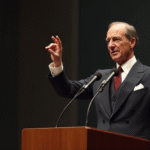Background and Key Players
The ongoing tensions between Israel and Iran have escalated, with both nations exchanging attacks over the weekend. This situation has heightened concerns of a broader regional conflict. Key figures in this drama include Israeli Prime Minister Benjamin Netanyahu and U.S. President Donald Trump, as well as Iranian officials such as Foreign Minister Abbas Araqchi.
Recent Developments
- Israeli Attacks: Israel has targeted Iran’s largest gas field and other military sites, claiming to have delayed Iran’s nuclear program by years.
- Iranian Response: Iran has retaliated with attacks on Israeli and Iranian energy infrastructure, including a petroleum depot in Tehran and a refinery near the capital. The Iranian Revolutionary Guard reported strikes on Israeli fighter jet fuel production facilities.
- Casualties: Both sides have reported fatalities. Iran claims 78 deaths on the first day and additional casualties on the second, including 29 children in a missile strike on an apartment building.
Impact and Concerns
The escalating conflict has raised concerns about regional stability and potential disruptions to oil exports. The price of crude oil surged by 9% on Friday due to fears of regional instability, despite Israel not directly targeting Iran’s oil and gas industry initially.
- Iranian Threats: Iran has warned of more extensive attacks if Israel’s hostilities continue and has considered closing the Strait of Hormuz, a crucial oil shipping route.
- Regional Allies: Iran’s regional allies, Hamas in Gaza and Hezbollah in Lebanon, have been weakened by prolonged conflicts, limiting their capacity for retaliation.
- Nuclear Program: Israel asserts that it has inflicted significant damage on Iran’s nuclear facilities in Natanz and Isfahan but has not yet targeted the Fordow enrichment center.
Key Questions and Answers
- Q: Who is involved in the conflict?
- Q: What are the main concerns of this conflict?
- Q: How have the attacks affected both nations?
- Q: What are the potential regional implications?
A: The primary parties are Israel and Iran, with significant international attention due to their nuclear programs and regional influence.
A: Concerns include regional instability, potential disruptions to oil exports, and the risk of drawing in external powers.
A: Both Israel and Iran have reported fatalities, with Iran claiming more deaths, including children. Israel asserts it has delayed Iran’s nuclear program.
A: The conflict could destabilize the Middle East, impact oil prices, and potentially draw in external powers.






